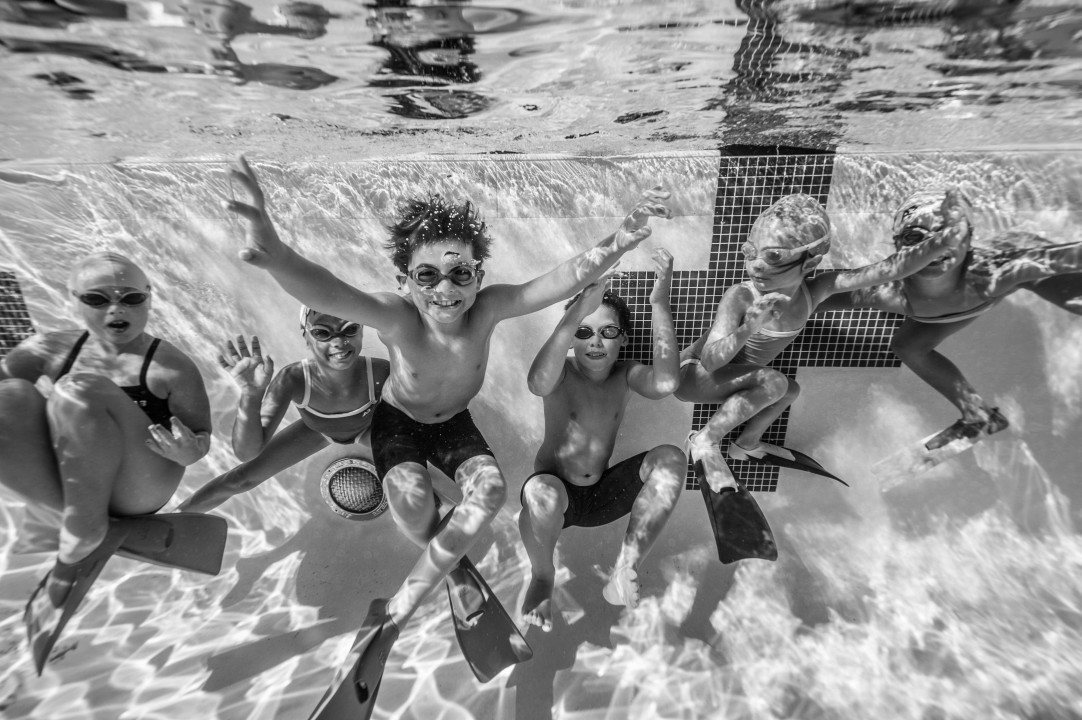Courtesy: Elizabeth Wickham
I volunteered at our club’s meet this past weekend and overheard some frightening things from parents. One mom told a friend after her teen son swam, “I took away his X-box.”
Her friend replied, “But he has straight A’s. Why?”
“He has to swim good, too,” the mom answered.
Punishing our kids for adding time? What could possibly go wrong?
The other thing I heard repeatedly was talk of bribes. Parents talked about what their child was going to get if they made a certain cut or swam a certain time. We’re guilty of this ourselves, beginning with a trip to Dairy Queen for a meet without a DQ, and moving onward and upward from there.
Here are five thoughts about using punishment and bribes to motivate our children to do well:
ONE
We can’t motivate our kids to swim fast. It isn’t possible because motivation is intrinsic. Our children have to want to swim and put in hours of hard work. What we can do is encourage and support them. Punishment isn’t encouraging and bribes are not long-lasting.
TWO
Parents who are bribing and punishing their kids are putting too much emphasis on results and performance rather than the journey.
THREE
Every day at practice and meets our children will swim differently. They may not have a feel for the water one day, but it all comes together the next. Our days are not perfect and we shouldn’t expect our kids to be “on” all the time, either.
FOUR
Punishing a child or withdrawing emotionally after a bad race teaches our children that we love them only when they perform well. This can cause performance anxiety and damage our relationship with them. We need to let them know we love them unconditionally—in spite of how fast or slow they swim.
FIVE
Bribing our children with ice cream or money may work today, but what do we promise tomorrow? As they grow older, the bribes get more and more expensive. Maybe instead of rewarding our kids for times, we should reinforce their attendance, effort and hard work.
What are your thoughts about using the carrot or stick approach at swim meets?
 Elizabeth Wickham volunteered for 14 years on her kids’ club team
Elizabeth Wickham volunteered for 14 years on her kids’ club team as board member, fundraiser, newsletter editor and “Mrs. meet manager.” She’s a writer with a bachelor of arts degree in editorial journalism from the University of Washington with a long career in public relations, marketing and advertising. Her stories have appeared in newspapers and magazines including the Los Angeles Times, Orange County Parenting and Ladybug. You can read more parenting tips on her blog.

Many kids on my son’s team get things ranging from puppies to iPhones for making various cuts. When my son got wind of this and wanted to know why he didn’t get anything for making his various cuts. We told him did, a sense of a job well done.
Some kids respond well to bribery when they are younger (whether rewarding personal best times or just getting them to training at all) but it’s not sustainable.
Even worse in team sports … seen kids paid by the goal/point scored so they refuse to pass to their team mates.
Guilty, Not Guilty. My son was a talented age group swimmer and as we know every swimmer has their nemesis. My childs nemesis had beaten him silly for four straight years to the point that he was verbalizing that he would never beat him head to head. I told him he was probably right, couldnt do it, and i was so sure of it that if he did be him there was a $100 bill waiting for him at the finish. Boy was he mad. Yes, he beat him the next time they raced, yes he got his $100 bill. A negative was turned into a positive and he has never again said ” i will never beat someone. He… Read more »
This subject… I cringe thinking back to the horrific swim parenting I witnessed over the years. The bribes….a new puppy for a zone cut!!!! True story! Publicly yelling at a child for not dropping time at zones. There are too many examples to mention. Our son was an age group stand out who received Nothing but a pat on the back for his accomplishments including NAGs. Our philosophy was always that the journey and sense of personal accomplishment was the reward.
AAAAAAAAMMMMMMMEEEEEEENNNNNNN!!!
“Our children have to want to swim and put in hours of hard work.”
As parents, our best advice to our young swimmer was “those that practice the hardest seemed to do the best.” That seems obvious but it may not be obvious to a young swimmer.
We just put the bug in his ear. It was up to him to decide if that is what he wanted to do. At any rate, he really started doing well after giving him this advice.
When my swimmers were very young, the Marlins of Raleigh invited new parents to attend a session with a sport psychologist. The stories told were horrific. I definitely did not want to be one of those parents; the ones offering carrots and sticks. The message was really simple: the kid has to own the sport. This is true of any sport but especially swimming since there are so many periods where there is little reward and they have to decide to push on. My wife and I strove to be supportive by providing transportation, cheering and financing of the activity, but no carrots and no sticks. Two of our four dropped the sport. The other two owned it for life,… Read more »
^^^^^THIS
Justin’s Dad? good work!
upon reading the title i was scared that it was a question of which of either method is “better”, not if either of them is useful/good.
very glad i was mistaken lol.